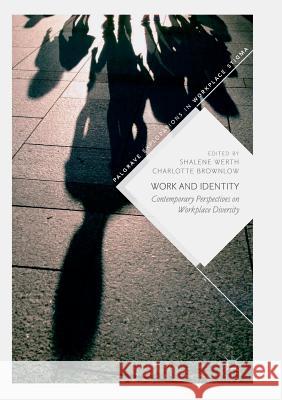Work and Identity: Contemporary Perspectives on Workplace Diversity » książka
topmenu
Work and Identity: Contemporary Perspectives on Workplace Diversity
ISBN-13: 9783030088880 / Angielski / Miękka / 2019 / 195 str.
Kategorie:
Kategorie BISAC:
Wydawca:
Palgrave MacMillan
Seria wydawnicza:
Język:
Angielski
ISBN-13:
9783030088880
Rok wydania:
2019
Wydanie:
Softcover Repri
Ilość stron:
195
Waga:
0.27 kg
Wymiary:
21.01 x 14.81 x 1.17
Oprawa:
Miękka
Wolumenów:
01
Dodatkowe informacje:
Wydanie ilustrowane











